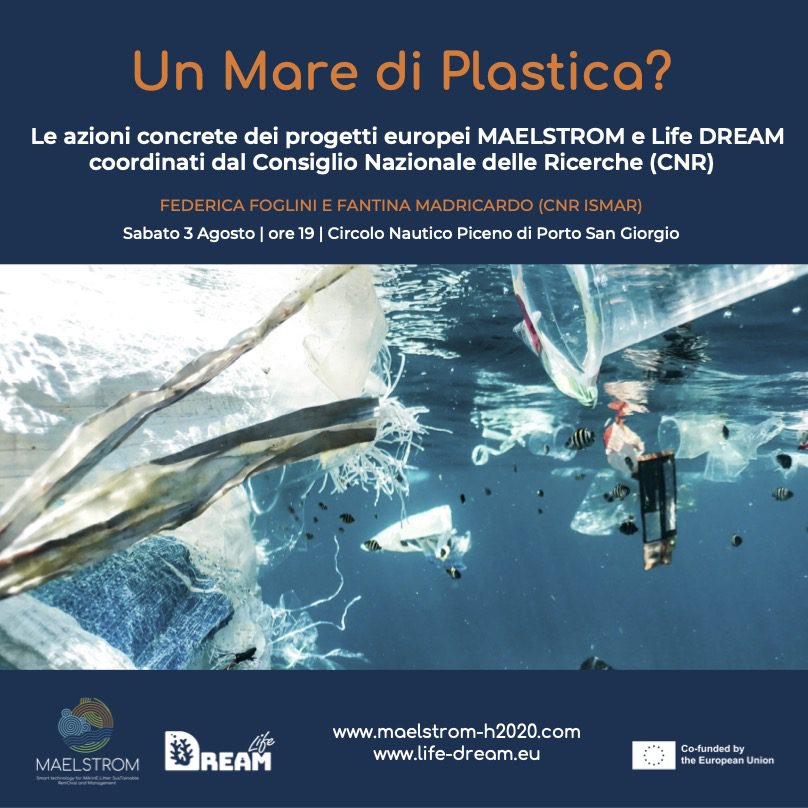A Sea of Plastic?

On Saturday, August 3rd at 7 PM at A.S.D. Nautica Picena, Porto San Giorgio – Fermo Province, (Marche Region) Federica Foglini and Fantina Madricardo, scientific coordinators of the European projects Life DREAM and H2020 MAELSTROM, will present the actions that the Italian National Research Council (CNR) is coordinating to address marine litter, its recovery, and management. They will introduce new technological solutions for recovery, separation, and recycling, as well as activities in coastal and deep-sea environments.
Federica Foglini will present the results of the recently concluded oceanographic mission as part of the LIFE DREAM project aboard the CNR Oceanographic vessel GAIA BLU. The mission aimed to study, restore, and monitor deep marine habitats such as corals in the Dohrn and Magnaghi Canyons in the Gulf of Naples and the Bari Canyon, all of which are significantly impacted by marine debris, especially plastic, at depths down to 1000 meters. Restoration actions include using a Remotely Operated Vehicle (ROV) equipped with cameras and robotic arms to remove debris from corals and placing 3D-printed “ecoreefs” made from eco-friendly materials to encourage new coral settlement in damaged areas. Additionally, the plastic component of the waste removed from the seabed will be recycled into second-generation fuel for local fishermen involved in “fishing for litter” campaigns. This circular economy experiment aims to create a self-sustaining mechanism even after the project’s end, reducing seabed plastic and first-generation fuel consumption, thereby lowering CO2 emissions.
Fantina Madricardo will present the results of the H2020 MAELSTROM project, which developed two technological solutions to clean coastal areas and rivers of debris: a semi-automatic robotic platform that successfully collected over two tons of debris from the seabed in Venice, and a bubble barrier installed in the Ave River estuary in northern Portugal, powered by floating solar panels, which prevents plastics from reaching the sea without interfering with the ecosystem. The collected waste is processed following circular economy principles, using a robot for automatic plastic separation and various mechanical and chemical recycling techniques to create new products and marine fuel used to power the robotic platform. While these actions are crucial for addressing existing plastic pollution, solving the problem at its source requires a global multilateral treaty on plastic production and management, which is currently under negotiation. The final part of the seminar will be dedicated to discussing the contributions of the Italian delegation in the past international negotiations in Nairobi (November 2023) and Ottawa (April 2024), and its final stage, expected to conclude in Busan, South Korea, next November (2024).
LIFE DREAM and MAELSTROM projects represent a significant step towards protecting and restoring marine ecosystems and contribute to the European Mission “Restore our Ocean and Waters by 2030” and to the ongoing global efforts to tackle marine and environmental plastic pollution.